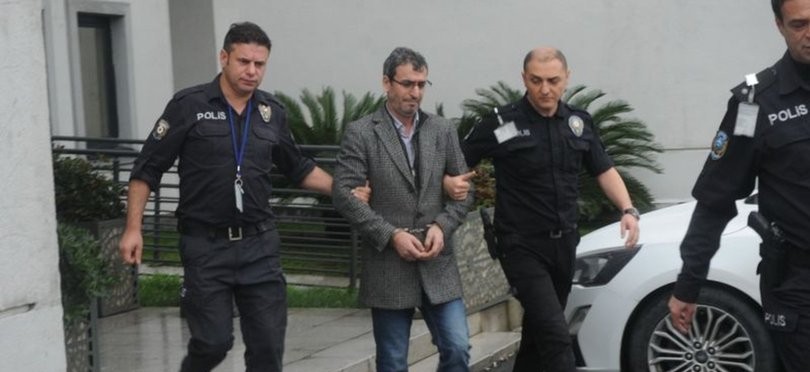Sweden, known for its loyalty to democratic values and respect for human rights, has sparked criticism due to its decision to extradite a Kurdish asylum seeker to Turkey, with lawyers calling the move a violation of international law.
Mahmut Tat was jailed by a Turkish court on Saturday following his arrival in İstanbul on Friday night. Sweden had detained him on Nov. 22 and extradited him on Dec. 2 after keeping him in police custody for 10 days.
Tat, who was sentenced to six years, 10 months in prison in Turkey on charges of membership in the terrorist Kurdistan Workers’ Party (PKK), in 2015 fled to Sweden, where his asylum request was denied.
Tat’s former lawyer, Abdullah Deveci, the told the Yeni Yaşam newspaper on Sunday that the Kurdish man’s extradition was a result of Turkey’s politically motivated request.
The lawyer said international agreements signed by Sweden concerning the right to asylum and the issue of extradition all make it impossible for the extradition of someone to their home country, even if they committed a crime, if that person faces the risk of being subjected to torture or mistreatment in that country.
“What Sweden has done is a crime. The Swedish state has committed a crime by violating the international treaties on refugees,” said the lawyer.
Deveci also said if Tat had been a Turk, he would not be in prison in Turkey today, claiming that his extradition was linked to his Kurdish identity and that Kurds are frequently subjected to such rights violations abroad.
Tat’s extradition comes at a time when the Turkish government has launched airstrikes against militant Kurdish groups in northern Syria including the PKK and is considering a ground operation there. As a result, anti-Kurdish sentiment in the country is on the rise.
Ali Yıldız, a Brussels-based lawyer and founder of The Arrested Lawyers initiative, told Turkish Minute that Sweden’s extradition of Tat is aimed at pleasing Turkey for its NATO membership bid and has no legal grounds.
Turkey has accused Finland and Sweden, in particular, of providing a safe haven for outlawed Kurdish groups it deems “terrorists” as well as some political dissidents, and has refrained from ratifying their NATO bids despite an agreement in Madrid in June.
Yıldız said Tat had been handed down the prison sentence in line with Article 314 of the Turkish Penal Code (TCK), which concerns membership in a terrorist organization; however, the European Court of Human Rights (ECtHR) previously found this provision lacking the quality of law.
In 1984 the PKK, listed as a terrorist organization by Turkey and much of the international community, took up arms for the creation of an independent state in predominantly Kurdish southeastern Turkey, but it later scaled back its demands to greater Kurdish autonomy.
“Although Swedish media call him a member of the PKK, the fact that he was convicted by a Turkish court of only membership in a terrorist organization makes one think he probably had not been involved in any acts of violence,” Yıldız told Turkish Minute.
He said based on international law, even though someone has not been granted asylum, they cannot be returned to a territory where their lives or freedom will be in danger on account of their race, religion, nationality, membership of a particular social group or political opinion.



